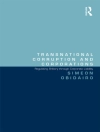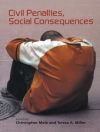Bakhtin and the Human Sciences demonstrates the abundance of ideas Bakhtin′s thought offers to the human sciences, and reconsiders him as a social thinker, not just a literary theorist. The contributors hail from many disciplines and their essays′ implications extend into other fields in the human sciences. The volume emphasizes Bakhtin′s work on dialogue, carnival, ethics and everyday life, as well as the relationship between Bakhtin′s ideas and those of other important social theorists.
In a lively introduction Gardiner and Bell discuss Bakhtin′s significance as a major intellectual figure and situate his ideas within current trends and developments in social theory.
İçerik tablosu
INTRODUCTIONS
Bakhtin and the Human Sciences – Michael Gardiner and Michael Mayerfeld Bell
An Introduction
PART TWO: DIALOGICS
A Bakhtinian Psychology – John Shotter and Michael Billig
From Out of the Heads of Individuals and into the Dialogues between Them
The Dialogics of Narrative Identity – Jennifer De Peuter
Culture as Dialogue – Michael Mayerfeld Bell
Bakhtin and the Dialogic of Society – Dorothy Smith
An Investigation
PART THREE: CARNIVALS
The Grotesque of the Body Electric – Peter Hitchcock
Bakhtin′s Dialogical Body Politics – Hwa Yol Jung
Knowing the Subaltern – Michael Bernard-Donals
Bakhtin, Carnival and the Other Voice of the Human Sciences
PART FOUR: CONVERSATIONS
′The Incomparable Monster of Solipsism′ – Michael Gardiner
Bakhtin and Merleau-Ponty
Bakhtin and Mannheim – Raymond A Morrow
An Introductory Dialogue
The Death and Rebirth of the Author – Ian Burkitt
The Bakhtin Circle and Bourdieu on Individuality, Language and Revolution
PART FIVE: ETHICS AND EVERYDAY LIVES
Bakhtinian Perspectives on ′Everyday Life′ Sociology – Courtney Bender
The Shock of the Old – Barry Sandywell
Mikhail Bakhtin′s Contributions to the Theory of Time and Alterity
The Norms of Answerability – Greg Nielsen
Bakhtin and the Fourth Postulate
Yazar hakkında
Michael Mayerfeld Bell is Professor of Community and Environmental Sociology at the University of Wisconsin-Madison. For his day job, he is principally an environmental sociologist and a social theorist, focusing on dialogics, the sociology of nature, and social justice. These concerns for the world have led him to studies of agroecology, the body, community, consumption, culture, development, food, democracy, economic sociology, gender, inequality, participation, place, politics, rurality, the sociology of music, and more. He is also a part-time composer of grassroots and classical music, and a mandolinist, guitarist, and singer.












